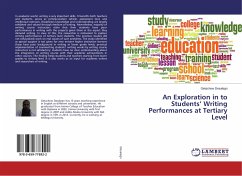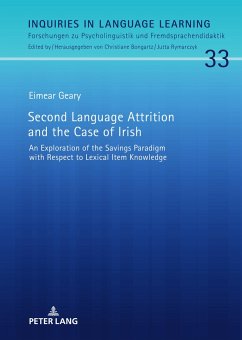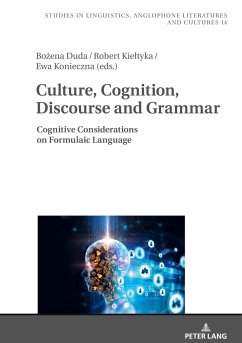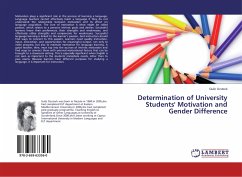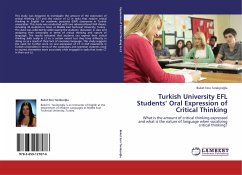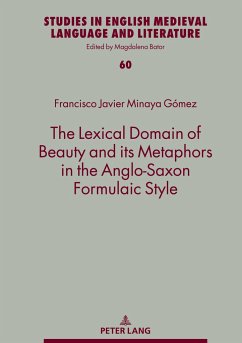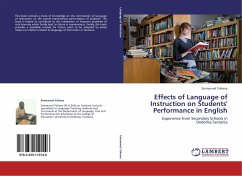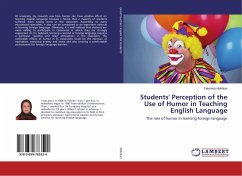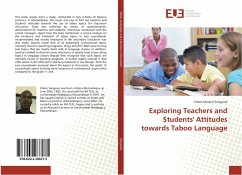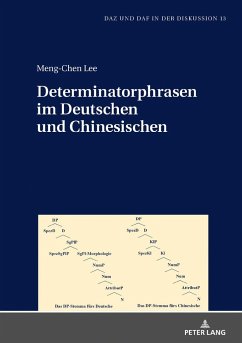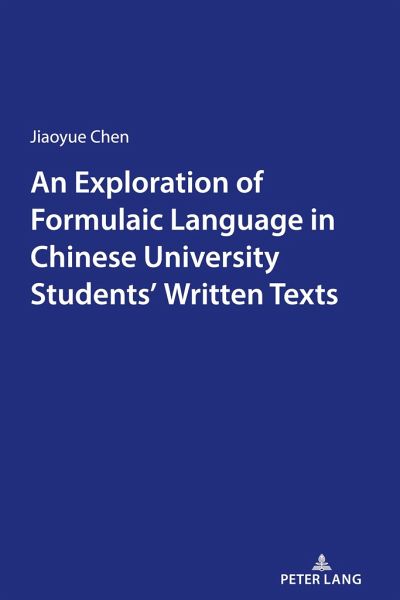
An Exploration of Formulaic Language in Chinese University Students' Written Texts
Versandkostenfrei!
Versandfertig in 6-10 Tagen
100,65 €
inkl. MwSt.
Weitere Ausgaben:

PAYBACK Punkte
0 °P sammeln!
This is a descriptive study, based on PhD research, that aims to find out what sorts of formulaic language are used by Chinese learners of English, and what the learners think about the concept, learning, use and teaching formulaic language in the EFL context. The author does this by analyzing texts written by two groups of Chinese EFL learners (83 first-year college students and 73 third-year college students) and interviews with 12 focal participants (6 from each group). The main findings are that formulaic language did occur in the learners' output, and that there was a measure of correspon...
This is a descriptive study, based on PhD research, that aims to find out what sorts of formulaic language are used by Chinese learners of English, and what the learners think about the concept, learning, use and teaching formulaic language in the EFL context. The author does this by analyzing texts written by two groups of Chinese EFL learners (83 first-year college students and 73 third-year college students) and interviews with 12 focal participants (6 from each group). The main findings are that formulaic language did occur in the learners' output, and that there was a measure of correspondence between the 'strings' that the students identified for themselves as holistic units, and 'clusters' that the researcher identified computationally as frequent. The terms core formulaic language pairs and shared formulaic language were proposed, suggesting a broader view of what is formulaic on the part of the EFL learners. This book ends with a discussion of the implications for teaching practice and the direction for future research on formulaic language in the EFL context.




